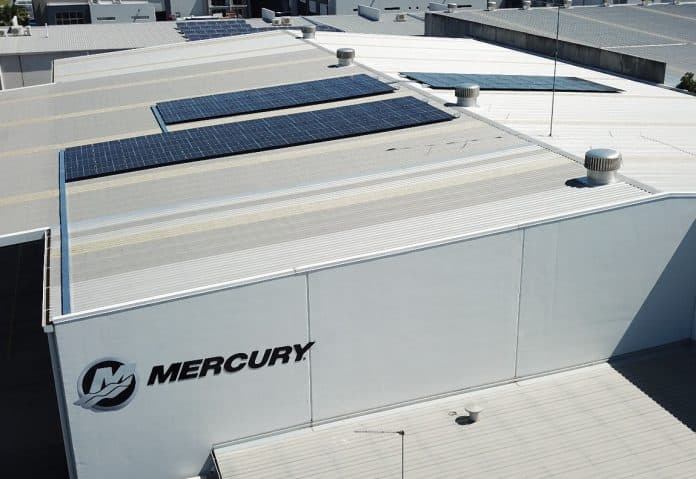Mercury Marine has underlined its global commitment to sustainability with its first large-scale solar installation across its Australia/New Zealand operations. The new 40kW system was turned on in September at the company’s Gold Coast offices which serve as a warehouse and distribution centre for Mercury’s Queensland operations and incorporates a sales centre and workshop for the servicing of engines.
The system is projected to generate almost 63,000 kilowatt hours of power per year, saving thousands of dollars and preventing over 50 tonnes of CO2 from being released into the atmosphere annually.
Mercury Marine Sustainability Goals
The installation comes with Mercury Marine sustainability goals, with a focus on energy efficiency, resource conservation, and reducing emissions.
The company has been actively investing in renewable energy projects around the world in recent years, including solar installations in France and Germany.
“We are leading the way among marine companies when it comes to sustainability,”
Mercury Marine CEO Tim Hickey
“Our Queensland office is a great example of how we are taking action to reduce our carbon footprint and help protect the environment for generations to come.”
The installation is part of a commitment to the United Nations Global Compact, which calls on businesses to actively promote sustainable practices and reduce their environmental impact.
The company is also a member of the Green Marine program, an organization that promotes eco-responsible marine practices across North America.
Sustainability is more than just a commitment – it’s part of the company’s core values.
The company continues to invest in renewable energy projects and initiatives to ensure a healthier, more sustainable future.
Mercury Marine is committed to working with the government, industry, and the community to reduce its environmental impact. By investing in solar energy technology, and taking a proactive step towards reducing their carbon emissions and limiting their environmental impact.
The installation in the Gold Coast offices serves as an example of what businesses can do to reduce their carbon footprint and promote sustainability.
The 40kW system is projected to generate 63,000-kilowatt hours of power per year, saving thousands of dollars and preventing over 50 tonnes of CO2 from being released into the atmosphere annually.
Mercury Marine Team
Is proud to be part of a larger movement toward reversing climate change and preserving the environment.
Mercury Marine’s Senior Director of Supply Chain, Andrew McLean, said “The Queensland office has been a really good pilot program to measure the return on investment and the reduction in carbon emissions. We are thrilled that Mercury Marine can be part of this larger movement towards sustainability as we move forward into a greener future.”
The commitment to sustainability through its solar installation in Queensland is just one way that the company is doing its part to reduce its environmental footprint.

Mercury Marine is dedicated to taking action and creating a more sustainable future for generations to come. They are continuing to look for new ways to reduce their carbon emissions and increase their energy efficiency, as well as implementing green initiatives in their factories and offices throughout the world.
“We are already starting to save money on our electricity bills in the couple of months since we installed the system and we know it’s making a difference to our environmental footprint,”
Senior Director of Supply Chain, Andrew McLean
“There will still be some need for electricity from the grid, but solar is now providing the majority of what we need to run this 2500m2 facility which is very pleasing.”
Mercury Marine is also committed to zero waste and green energy initiatives, making them one of the most forward-thinking organizations when it comes to environmental stewardship.
Mercury’s local operations are now striving to have all Mercury facilities within Australia powered by solar energy, which will lead them to become one of the first locations globally that will be powered by solar energy.
Mercury’s four pillars of sustainability – energy, environment, product and people – were the driving force behind this latest initiative.
Mercury plans to transition into a more sustainable conscious organization globally, with clearly defined goals and measurable objectives.
Mercury Marine Sustainability Timeline
| FromYear 2003 | Mercury has more CARB (California Air Resources Board) 3‑Star‑certified outboard engines than any other manufacturer. |
| 2004 | Verado® outboard engines with supercharged, four-stroke technology set new standards for fuel economy and low emissions. |
| 2005 | OptiMax® 225 Pro XS™ is first fuel‑efficient, performance outboard built on main Mercury Marine assembly line. |
| 2006 | Mercury leads industry with highest percentage of sales from low‑emissions outboards. Zeus® pod systems provide up to 30% better fuel economy than inboards |
| 2009 | New 8.2L big block engine is first to come standard with catalyst technology and ultra‑low emissions. |
| 2010 | ECO‑Screen named Green Product of the Year for helping boaters improve fuel efficiency. |
| 2011 | Mercury Marine issues its first Sustainability Report. |
| 2012 | Upgraded Mercury 150hp FourStroke™ is launched and achieves improved emissions certification. |
| 2014 | Mercury Enertia ECO Propeller is globally recognized for delivering significant fuel savings without sacrificing performance. New 4.5-liter Mercury sterndrive wins IBEX Innovation Award for providing increased fuel economy and a better boating experience. |
| 2015 | Mercury Marine launches Active Trim™, which delivers improved engine performance and fuel efficiency. |
| 2016 | Enhanced Mercury SeaPro™ 40hp and 60hp line expands clean and fuel‑efficient offerings. |
| 2018 | Mercury unveils all‑new V8 and V6 four‑stroke outboards that win Business Friend of the Environment Award. |
| 2019 | Plant 3 warehouse and distribution center becomes first Mercury Marine “zero waste to landfill” facility. Mercury earns Sustainable Process Award from the Wisconsin Sustainable Business Council for responsible methods of using aluminum in manufacturing. |
| 2020 | Mercury receives 2020 Energy Efficiency Excellence Award from Wisconsin’s Focus on Energy program. Mercury completes installation of a rooftop solar array at its world headquarters facility. |
| 2021 | Mercury earns its 11th consecutive Green Masters certification from the Wisconsin Sustainable Business Council. LNS/Kellogg distribution center becomes second Mercury facility to earn “zero waste to landfill” distinction. Mercury earns Excellence in Corporate Energy Management Award from the International Association of Energy Engineers. Mercury develops the Avator electric-outboard concept with a pledge to begin bringing products to market in late 2022. |
Mercury Marine Sustainability Policy
While developing and manufacturing products in a manner conducive to improved quality of life for its stakeholders, they strive to meet its fiscal responsibilities while being environmentally responsible, safe, and environmentally responsible.
In addition to marine propulsion systems, manufactures other products that allow people around the world to work and play on water. With its modern low-emission outboard, inboard, and sterndrive marine propulsion systems, Mercury Marine sets the pace and establishes new standards as the marine industry moves forward with engine technology and manufacturing processes.
Four Pillars Of Mercury Marine Sustainability
Energy
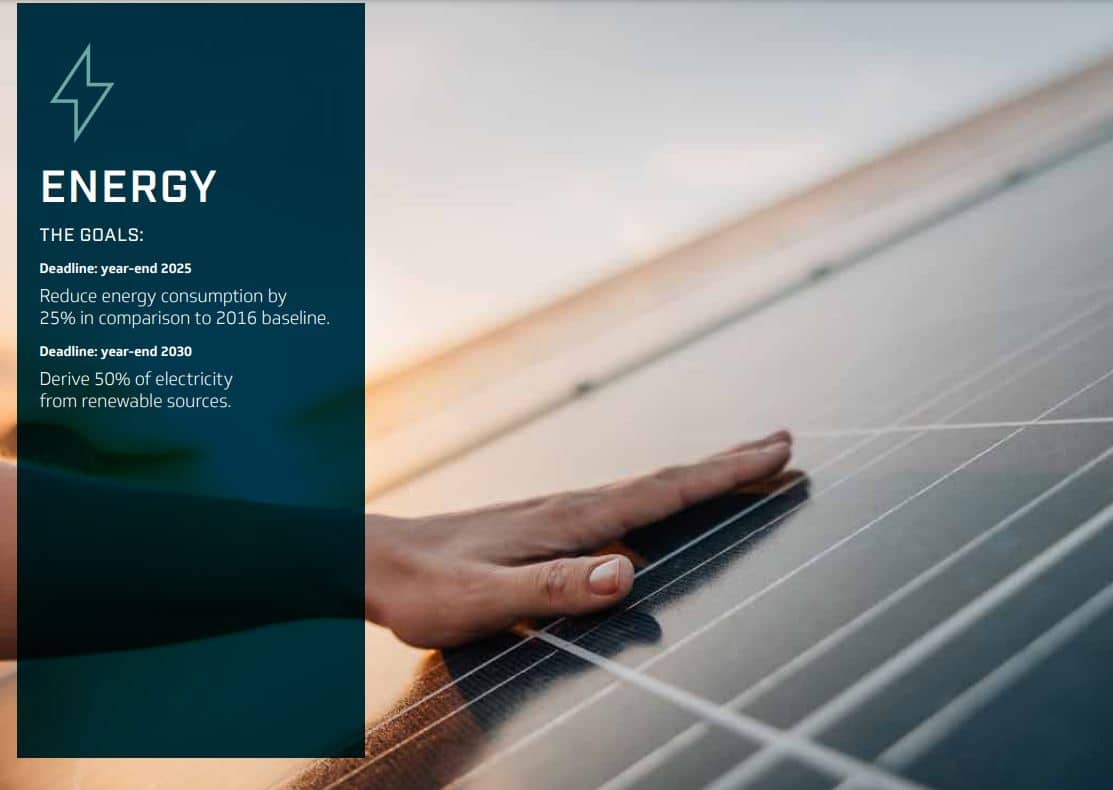
Implementing energy-saving projects, promoting energy management best practices, and adopting new energy technologies to achieve greater energy efficiency.
Product
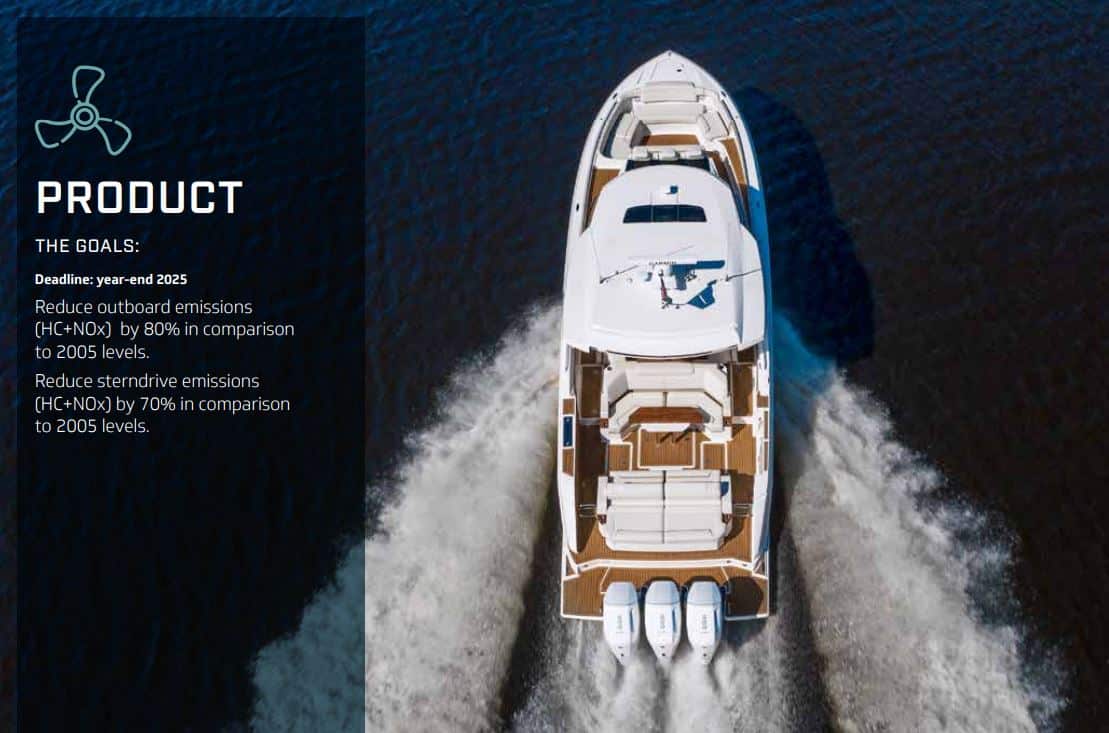
Maintaining an unspoiled environment in which to live and enjoy Mercury products – minimising Mercury’s impact on water, land, and air.
Environment
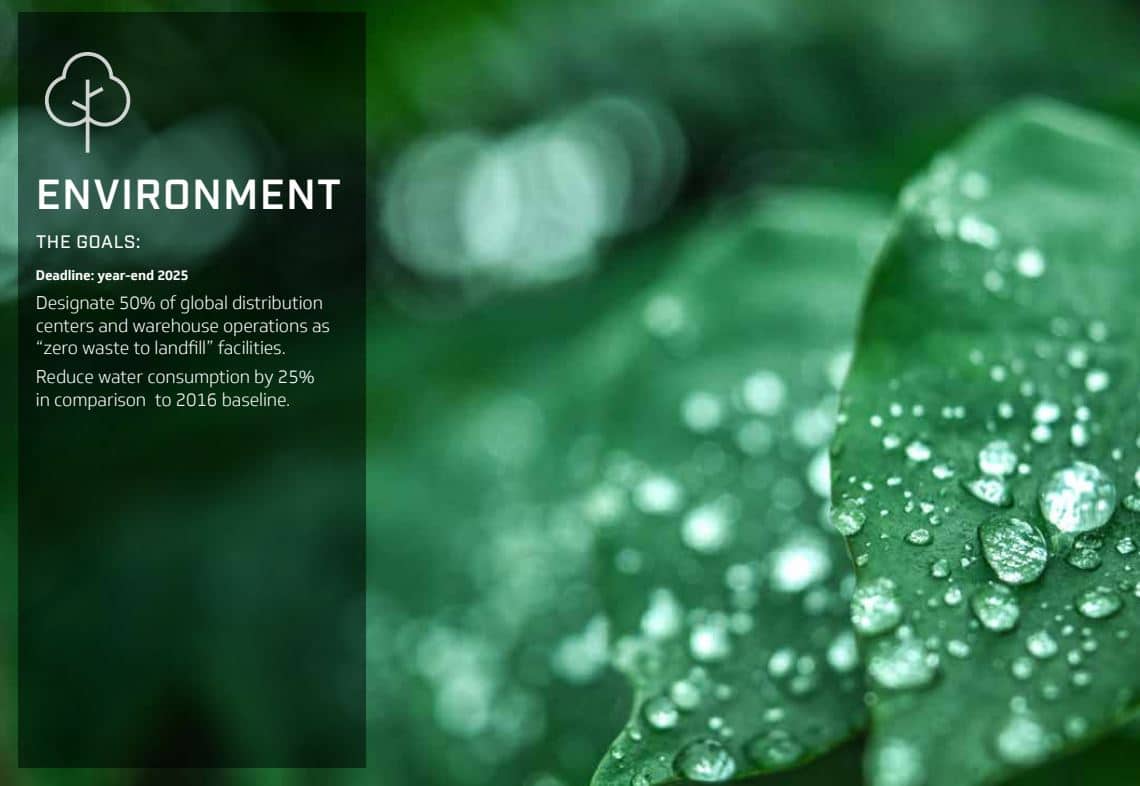
Conserving, redeploying, and recycling natural resources; returning purified products back to the planet whenever possible; and preserving the natural places where Mercury products are used for work and play.
People
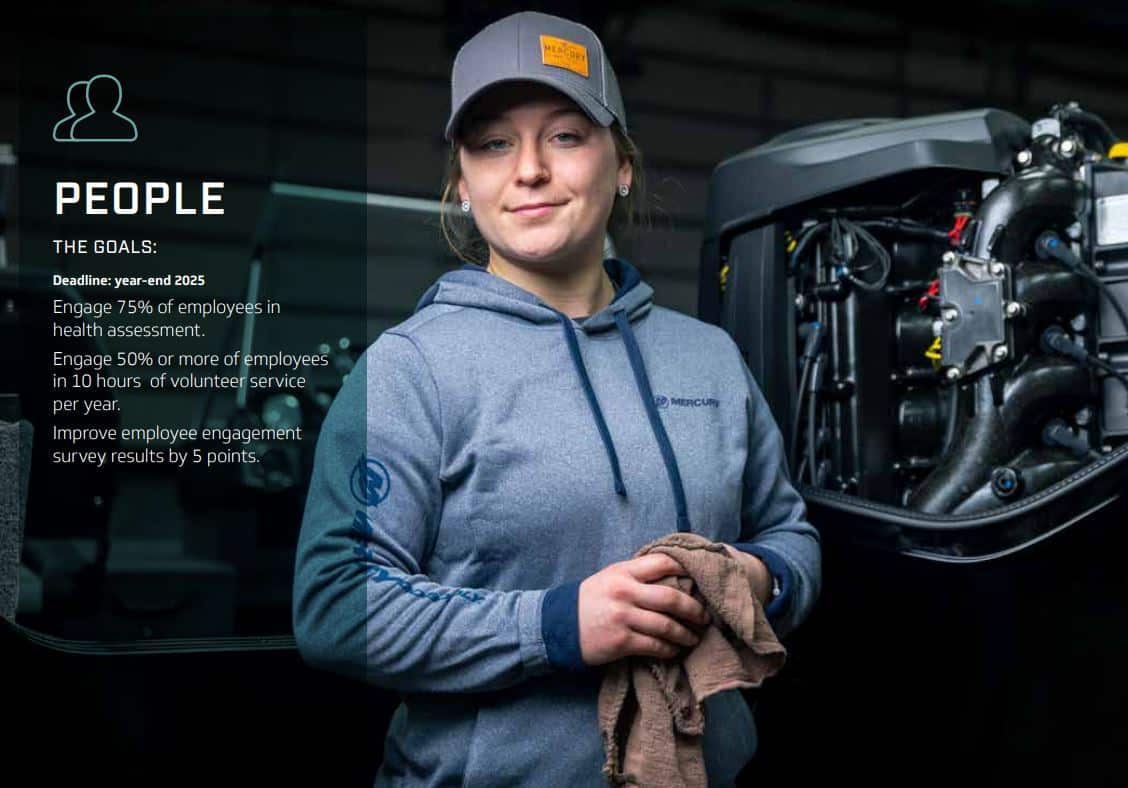
Providing happier, healthier and more fulfilling lives to those where Mercury operates – employees, partners, customers, and communities.
Some of these targets include reducing energy consumption by 25%, outboard and sterndrive emissions by 80% and 50% of global distribution centers designated as zero waste to landfill facilities.
Mercury is also aiming to reduce water consumption by 25%.
This is an ambitious goal, but Mercury is confident that it can reach 50 percent renewable electricity generation by 2030.
We applaud Mercury Marine for its commitment to sustainability!
You may also like:


